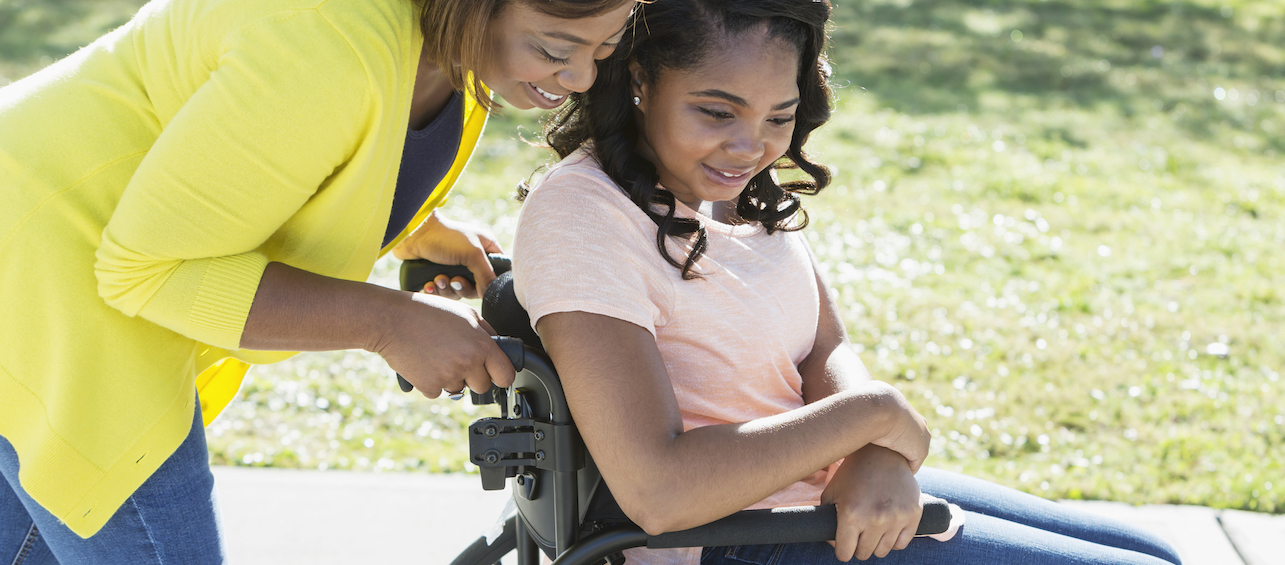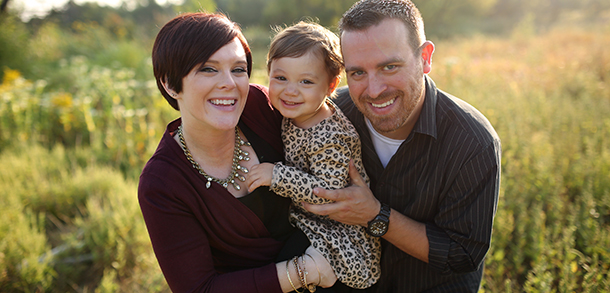It might not excite you to talk about periods, but they’re important to discuss. If you’re reading this, you likely have a child or know someone special in your life who already needs or soon will need guidance going through this significant stage of life.
Below are questions I often get asked here in our Division of Pediatric and Adolescent Gynecology, as well as some helpful hints we use with the patients and families we see.
Q: When do girls typically get their first period?
A: Girls usually start their first period between the ages of 10 and 15. Menstrual periods usually do not start until about 1-1/2 to 3 years from when breast development starts. So we look for breast development as a guide of when to expect the start of periods. If your child hasn’t started breast development by age 13 or started their period by age 15, you’ll want to talk to your child’s doctor.
Q: How long does the first period usually last?
A: The first period can last anywhere from 2 to 7 days. It could be light or heavy.
Q: After the first period, will it be regular each month?
A: Not necessarily. It can be normal for periods to be irregular for the first 1–2 years. See our gynecology team’s period rule (or the 1-10-20 rule) below if you’re concerned about your child’s period being irregular.
Q: Are tampons okay, even starting with the very first period?
A: Yes. Some people find tampons more convenient, especially those who play sports. Prep your child ahead of time if you think they’ll be interested in using tampons. Show your child how they work so they’ll know what to expect when it comes time for the real thing.
Q: How do I bring this topic up with my child?
A: Be matter of fact—this happens to half the population in the world. The more you bring it up, the more normal it will feel to discuss. A little humor can go a long way with this topic. School-age kids are often more open to listening to you. Try giving your child some of this info before they’re 11 or 12, so they get used to hearing you bring it up.
Q: Does my child need to start seeing a gynecologist right after their first period?
A: No. As long as their period arrives in a timely way and they’re not having any of the “1-10-20” problems below, there’s no need to see a gynecologist right away. We support the recommendation to see a gynecologist between the ages of 13-15, so girls understand what to expect, learn healthy ways to manage periods and can ask any questions they may have. And know that the first visit does not typically include a pelvic exam.
Follow the 1-10-20 Rule
If your child’s period breaks any of the following rules, they may be at risk of anemia (low blood counts causing fatigue, headaches, or shortness of breath with activity) or another health concern. Call your child’s pediatrician if any of the following occurs:
- 1: Your child soaks a pad every hour for several hours straight. This could lead to a sudden case of anemia and rapid development of symptoms.
- 10: Bleeding lasts 10 days or more. This can slowly lead to anemia.
- 20: There are fewer than 20 days between the start of one period and the start of the next one. This can more slowly lead to anemia but also is frustrating for many teens and tweens.
Use a Period Tracker
I’m a big advocate for tracking periods. If your child doesn’t keep track of their period, it might be difficult to remember when it started or how long it’s lasted. Having a regular period is a sign of good overall health. So knowing if it’s occurring each month and for how long can tell us a lot about your child’s general health.
Show your child a variety of period trackers and let them choose one that will be easiest to keep up to date. Marking it on a wall calendar or a paper chart downloaded from online is one option. My favorite way to track periods is through an app. There are several period tracker apps that show when your last period was, what cycle day you’re on and the projected start date of your next period. Some also have symptom trackers that can be helpful. We often suggest the following options to try: Clue Period & Cycle Tracker, Flo My Health & Period Tracker, or Spot On Period Tracker.
Helpful Tips
- If your child has not yet started getting periods, stock up on period products now. Choose a variety of products so when your child does start, you’ll have something on hand and won’t need to rush out to buy supplies.
- Period underwear is a great product that’s getting a lot of attention these days. They look and feel like normal underwear but have a built-in special layer to absorb blood. Called “period panties” by several brands, they come in a wide range of sizes, styles and absorbency.
- Consider making a small bag with a pad, tampon and clean underwear for your child’s backpack or gym bag, so they’ll be prepared for the first or following period.
Periods are a fact of life. Having conversations about them with your child can make both of you more comfortable hearing and talking about this type of information. You’ll want your child to feel comfortable so if they do have a problem, they’ll come to you about it.





